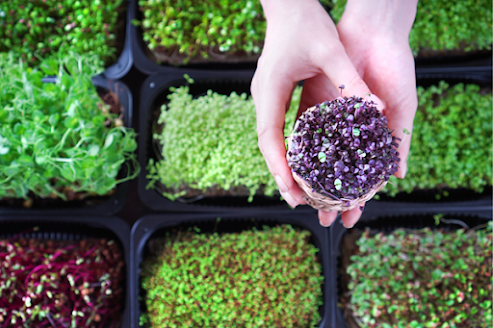Microgreens | The Newest Addition to Diet
What Are Microgreens?
Microgreens are a type of vegetable that is typically small in size and have a very thin stem. These vegetables are often grown in warm climates, such as in Florida or Hawaii, because they require less water than other vegetables. Microgreens are high in nutrients, including vitamins A and C, potassium, calcium, and magnesium. They also contain anti-inflammatory properties and antioxidants. One way to benefit from microgreens is to eat them as part of a salad or as a snack. They also can be used in stir-fries or soups. You can add them to your diet by juicing them or using them in baking recipes.How To Use Microgreens
Microgreens are a type of leafy green that typically have a smaller size than other vegetables. They are also good sources of vitamins, minerals, and antioxidants. You can use microgreens in salads, as part of smoothies and juices, or cooked with other vegetables. To use micro greens, you need to rinse them first. Then, chop or tear them into small pieces. You can also mix them with other vegetables for cooking or salads. For example, cook them with onions and garlic for a stir-fry dish or add them to a salad.
Benefits Of Microgreens
Microgreens are small, leafy vegetables that are typically grown outdoors. They have a high concentration of antioxidants, vitamins, minerals, and other nutrients.
Some microgreens, such as bok choy and kale, have been shown to have anticancer properties. Microgreens can be eaten fresh or cooked. They are an excellent source of vitamins A and C, fiber, and potassium.
Common Types Of Microgreens
Microgreens are a type of vegetable typically much smaller than other vegetables. They are both fresh and frozen and popular for their high nutrient density and antioxidant content.
Some common types of microgreens include:
Alfalfa
Swiss chard
Radish
Beet greens
Celery
Common Uses For Microgreens
Tips For Buying And Storing Microgreens
Microgreens may be a good fit if you're looking for vegetable options that are low-calorie and high in antioxidants. Here are some tips for buying and storing microgreens: 1. Look for organic or pesticide-free greens. 2. Store micro greens in a dark, airtight container in the fridge. 3. Use them fresh or add them to salads or smoothies as a healthy addition.
Learn more about it at https://www.microgreen.directory/news
Conclusion
Microgreens are a type of vegetable that can be easily incorporated into your diet and provide many health benefits. They are packed with nutrients, vitamins, and minerals, which can help improve your overall health and well-being. By including microgreens in your meals, you will not only be feeding your body the nutrients it needs but also helping to improve its overall digestion. If you're looking for ways to enhance your health and increase the nutrient content of your diet, consider incorporating microgreens into your meals regularly.

.png)





Comments
Post a Comment